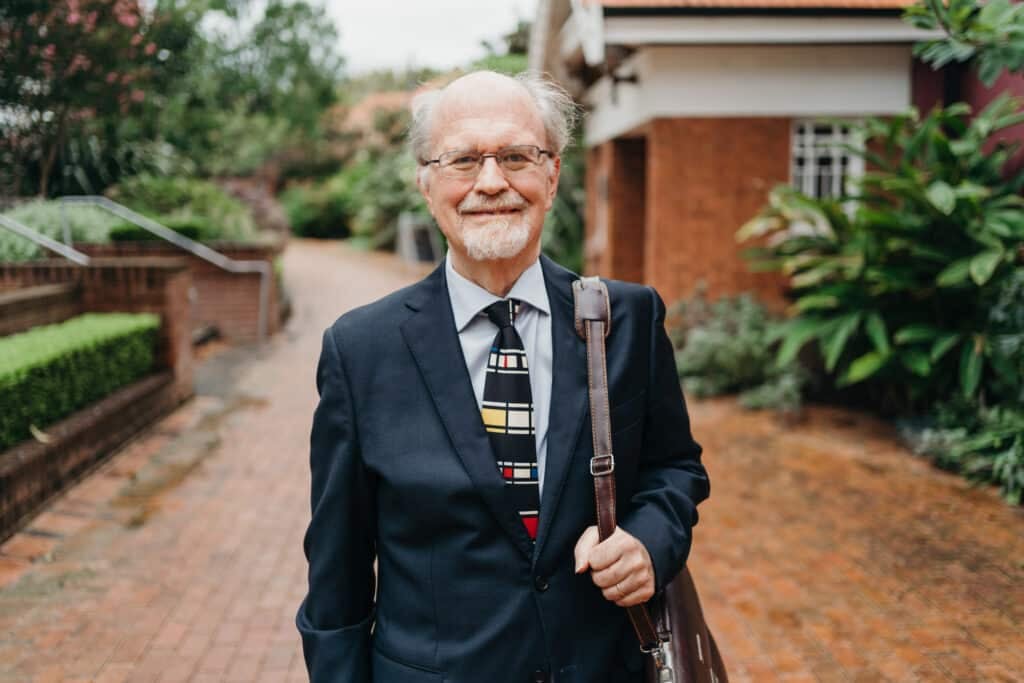
Catholic school principals are less stressed than their government counterparts despite risks to their mental and physical safety at work spiking to unacceptable levels in the past year, a national wellbeing survey has found.
Principals are in crisis with stress levels so high that almost one in two triggered a “red flag” warning them of serious risk to their health from factors including workplace stress and thoughts of self-harm.
Researchers were shocked to see a jump in violence directed at principals, with 44 per cent experiencing physical violence or threats at school in the past year, mainly from parents and carers.
Teacher shortages have also become a major source of stress across all sectors, after long working hours and insufficient time for teaching and learning. Principals are also worried about the mental health of their staff and students.
The national wellbeing survey by the Australian Catholic University’s Institute for Positive Psychology and Education began in 2011 and is the longest-running survey of its type in the world.
Chief investigator Professor Herbert Marsh said that while Catholic and independent school principals fared better than those in the public sector, there needs to be stronger support for them all.
All reported unrealistic weekly workloads requiring an average 56 hours per week during term and 22 hours per week during school holidays, while Catholic principals still face “unacceptably high levels” of violence, threats and bullying at work.

“School leaders in the Catholic sector generally perceive their general health to be higher and they have lower levels of burnout and stress and higher levels of job satisfaction,” Professor Marsh said.
“That is even though the actual working hours are similar to or even greater than they are in the government sector.
“But the school principal position has become much more stressful, much more demanding and probably less satisfying.
“Principals are really passionate about their jobs and don’t go into it for the rewards but there are huge demands on them and their stress is increasing all the time.”
The survey has found a steady increase in stress and demands on education leaders each year, but the latest figures are the starkest yet.
“Principals are really passionate about their jobs and don’t go into it for the rewards, but there are huge demands on them and their stress is increasing all the time”.
ACU Investigator and former principal Dr Paul Kidson said school leaders were now 11 times more at risk of experiencing physical violence in their workplace than the general population.
“Enough is enough. Our research shows abuse and intimidation towards principals and the associated health risks suffered by school leaders continues to grow and it must stop,” he said.
Teacher shortages jumped up from number 12 on the list of principals’ concerns to the top third issue keeping them awake at night in the latest survey.
One New South Wales Catholic primary school leader also spoke of, “an increasing expectation that schools are to be parents or to fill the gaps in order to keep an equilibrium for society in future generations and the amount of students, particularly boys, who are disrespectful, angry, violent and abusive.”
Mark Bateman, principal of St John the Apostle Primary School in Narraweena in Sydney’s north, said he worked 60 hours in the previous week but that it usually comes to around 50 hours, plus time during the school holidays.
Higher levels of engagement with parents, the parish and the wider community, improving systems and curriculum updates need time but there are often not enough hours in the day and he relies on intense time management to keep abreast of his workload.
“It’s a multilayered role that creates intense time pressures and also unpredictability. I can come in with the day all planned out and something can come from left field and derail you and take you away from the core business,” he said.
“It’s really about prioritisation, trying to organise the week and making sure I’m striking the right balance between things.”
With 30 years’ experience as a school leader Mr Bateman also maintains a high level of self-care including weekly golf games, time with his family, and regular sessions with a mental health care professional service provided by his diocese.
“Every four to six weeks I’ll get in touch with our employee assistance service if something’s happened that I need to process or just touch base with how I’m feeling at the moment,” he said.
“I’m lucky to have a very positive community here and good network of colleagues. My staff are a great bunch and love being together.
“Educators need to maintain friendships and relationships with loved ones, and especially be better at actively seeking professional support when needed”.
“We support each other and the work we’re doing for the kids and that’s what gets me up in the morning.”
The report made 15 recommendations for governments, employers, professional associations, school leaders, researchers and school communities.
Authors called on governments to eliminate low-value administrative tasks for principals and developing wellbeing strategies for teachers which will have flow on effects to their leaders and students.
Educators need to maintain friendships and relationships with loved ones, and especially be better at actively seeking professional support when needed.
School communities need to stop offensive behaviour “in schools of all types which should give us pause and shame.”
“Reducing levels of offensive behaviour will produce significant educational gains for students,” they wrote.
Professor Marsh also said parents also need to instil good values in their children and reinforce the important role of school principals and teachers in society.
Experiencing distress? Lifeline Australia may be contacted on 13 11 14.
